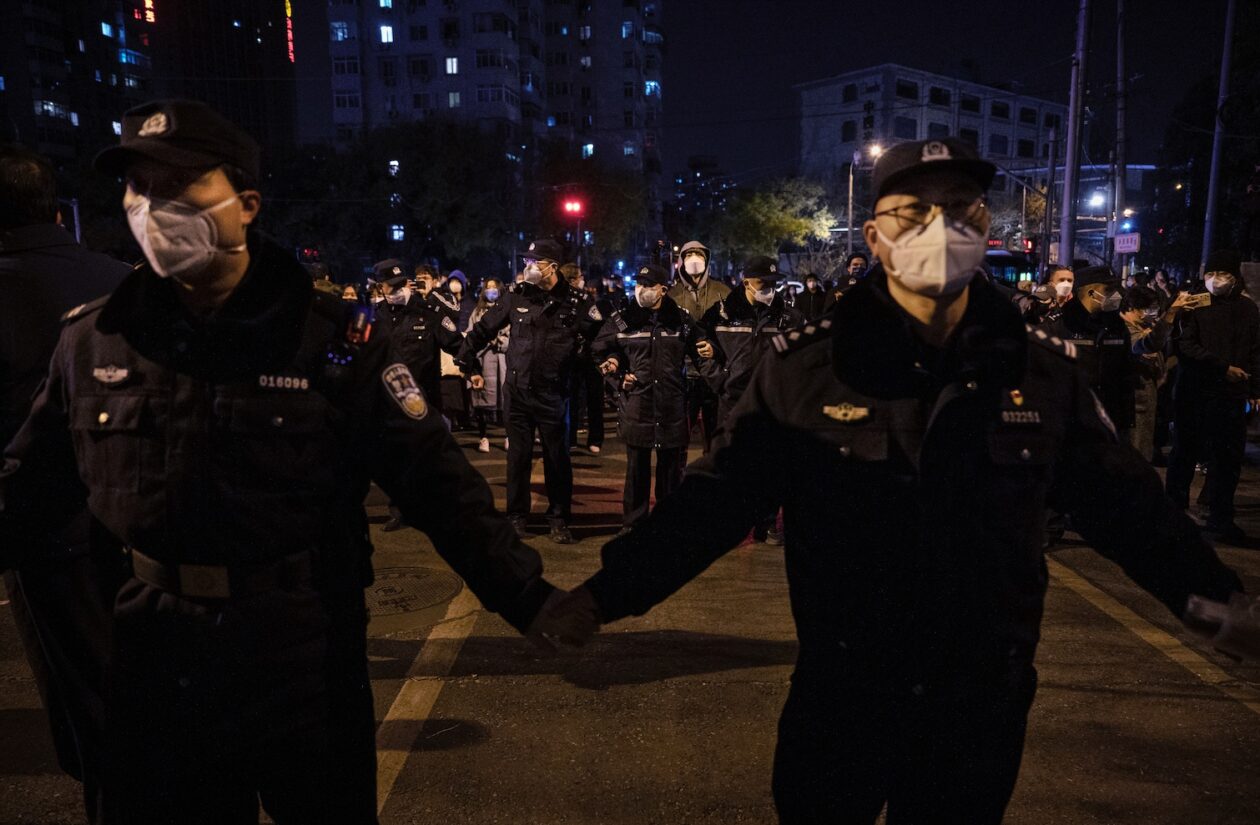Chinese authorities appear to be cracking down on internet service providers after videos and pictures of anti-government protests leaked onto Twitter and other blocked sites in China.
Virtual private networks (VPNs), which allow users to circumvent the country’s internet restrictions, seem to have been targeted, according to a VPN service provider and user comments on Twitter.
ExpressVPN, one of the popular services that Chinese internet users utilize to get around the Great Firewall – Beijing’s set of enforcements that regulates the internet that plays a role in online censorship – told Forkast on Thursday that it was experiencing connectivity issues in China.
“We are aware of the issue, and our engineers are currently working on a fix,” said ExpressVPN.
In a post published on Wednesday on its support page, ExpressVPN said that the team is “aware of a decline in VPN connectivity affecting users in China.”
The VPN disconnections appeared to occur following protests erupting across the nation over the past week over mounting frustration with Beijing’s zero-Covid lockdown rules. This has morphed into rare public criticisms of the Communist Party and leader Xi Jinping.
Li Laoshi, or Teacher Li, a popular protest-related information aggregator on Twitter, on Tuesday posted screenshots of messages from who Li claims to be an official of the Cyberspace Administration of China (CAC), the nation’s internet watchdog.
The screenshots include the CAC’s instructions to ramp up VPN crackdowns.
The Chinese police are also inspecting mobile phones of people on the streets and public transportation for foreign apps such as Twitter and VPN services, according to the Wall Street Journal and videos shared on Twitter and social media channels.
In response, Chinese internet users are getting creative to bypass police inspections. Some developed an iPhone widget that users can switch to a patriotic mobile theme with a simple tap, according to a Wednesday Twitter post that showed the feature.
In addition to posting on Twitter, some Chinese activists are using NFTs and decentralized technology to document and preserve details of the protests.





